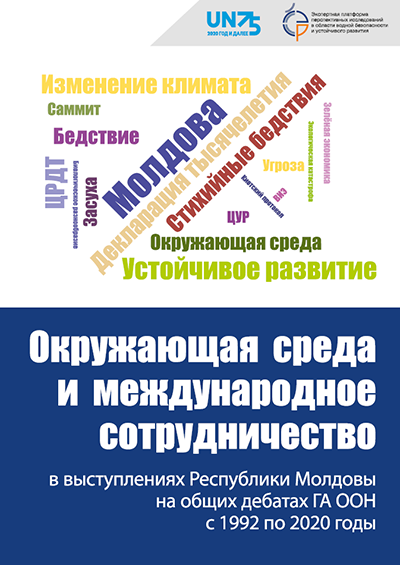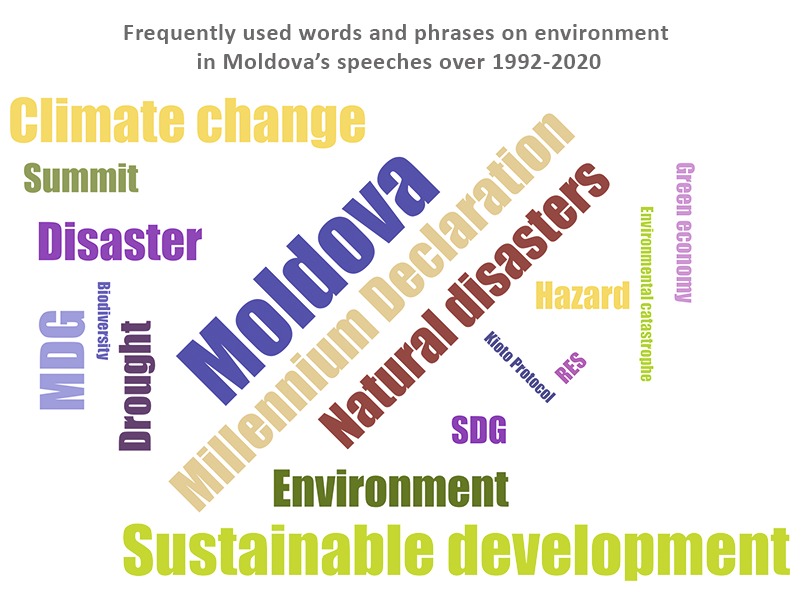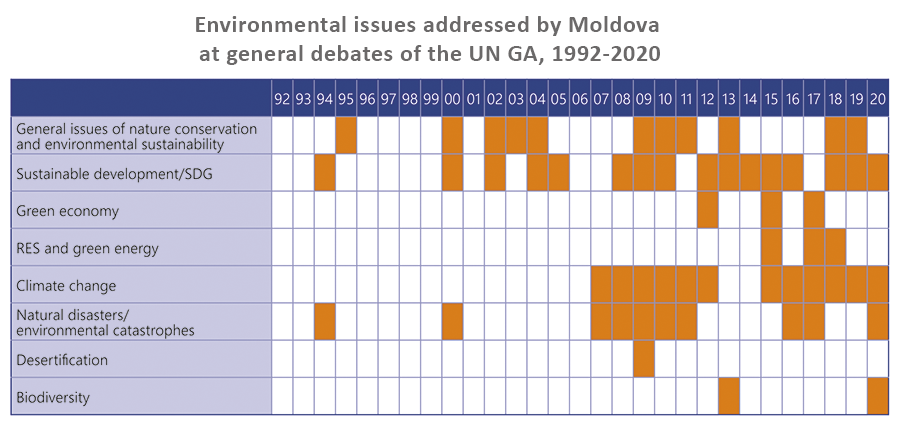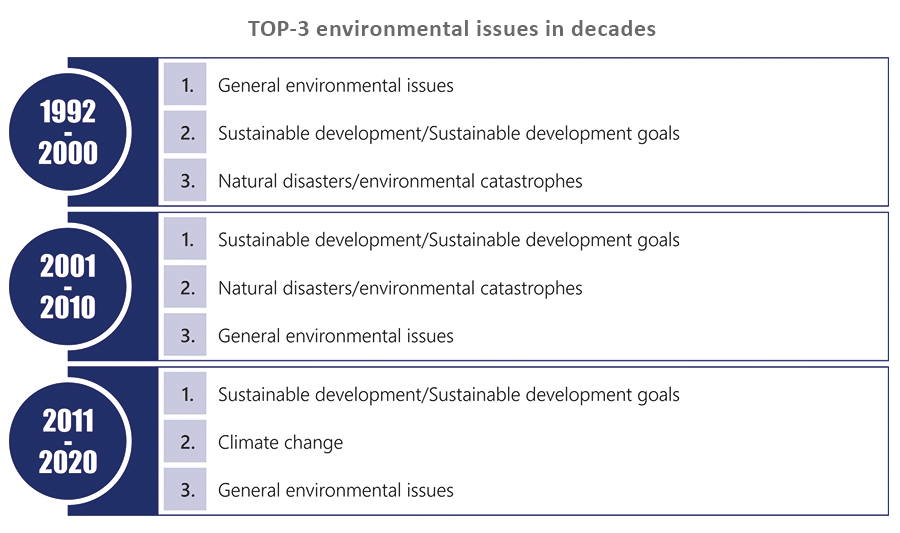Research
The Republic of Moldova at the UN General Assembly: Highlights on the Environmental Matters in 1992-2020
Authors: D. Ziganshina, A. Galustyan, D. Abasova
Experts contributed to the study: O. Kazantseva, A. Isac
Design: A. Degtyaryova
Prepared as part of the UNECE Project “Support to the Network of Russian Speaking Water Management Organizations” financed by the Government of the Russian Federation”
© UNECE, SIC ICWC, authors
On the occasion of the 75th anniversary of the United Nations, platform experts analyzed the statements made at the general debate of the UN General Assembly by the countries from Eastern Europe, Caucasus and Central Asia (EECCA) with focus on the environmental matters.
The objective of this study was to identify how frequently and in what way the EECCA countries addressed matters related to nature use, the environmental conservation and transboundary cooperation from the UN tribune.
A summary review of Moldova’s statements on the environmental matters is given below.
The The Republic of Moldova at the UN General Assembly: Highlights on the Environmental Matters in 1992-2020
[in Russian]
Download .pdf


Over the period from 1992 to 2020 the Republic of Moldova paid increasing attention to environmental issues. The focus in the Moldova’s statements at the UN General Assembly was mainly on general issues of nature conservation and environmental sustainability, sustainable development, climate change and disasters. Since 2015, Moldova spoke on a need to develop green economy, green energy and renewables and reported on measures taken in this respect.
Moldova raised the environmental matters rather briefly, except for issues related to sustainable development goals and climate change. In most cases, the country drew attention to environmental problems by calling for more active international cooperation in addressing challenges that the country could not solve alone and supported UN initiatives in this field. However, Moldova did not put forward its own proposals or initiatives on nature use and environmental protection at the UN GA. The experts explain this by low priority of environmental issues in the country.
Despite the urgency and importance, such issues as water use and protection, including transboundary cooperation along the Dniester River, air and land pollution, waste problem and deforestation received no attention from Moldova at the UN GA.




In expert opinion, in its future statements at UN GA Moldova needs to pay more attention to the main regional risks, among which are water and environmental security risks from ecosystem destruction and growing water shortage caused by unsettled situation in sharing waters of the Dniester River and from biodiversity reduction as a consequence of intensive agricultural activity and irrational use of forest resources. Among other priority issues to be addressed from the UN GA tribune the experts list adaptation; water protection, including also transboundary water; sustainable governance and financing of protected transboundary natural areas; sustainable forest management and afforestation; air pollution; waste management; energy efficiency and use of sustainable renewables; reduction of resource-intensity of production (or GDP); green economy; and, shift in development policy from the consumer society to the production society. Regarding constructive initiatives on nature use, environmental conservation and transboundary cooperation that could be also promoted from the UN GA, the experts name the ecosystem and basin approaches and the focus on practical implementation of UN’s environmental initiatives at the national and local levels rather than formal support of the initiatives.
 O. Kazantseva:
O. Kazantseva:
“Despite the insufficient attention to the environmental matters from the side of the state, Moldova has experience in economic evaluation of ecosystem services that may contribute to formation of new financial mechanisms in nature use, organization of organic farming, and development of environmental infrastructure by creating a national environmental network. There is also experience in transboundary water cooperation through a basin agreement and activity of the Dniester River Commission. These issues require more coverage at the UN GA so that to draw attention to the problems and call for concrete actions through joint efforts”.
 A. Isac:
A. Isac:
“Moldova formally supports all UN initiatives, conventions and declarations but it would be more pragmatic to implement them at the national and local levels, organize effective monitoring of progress and ensure sustainability and continuity under conditions of frequent changes of government and parties in power”.
